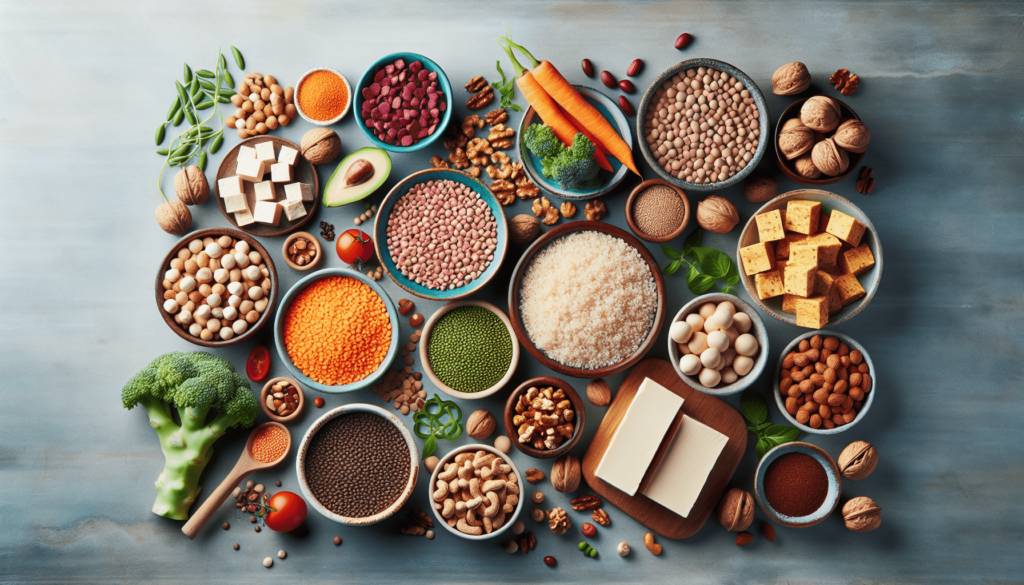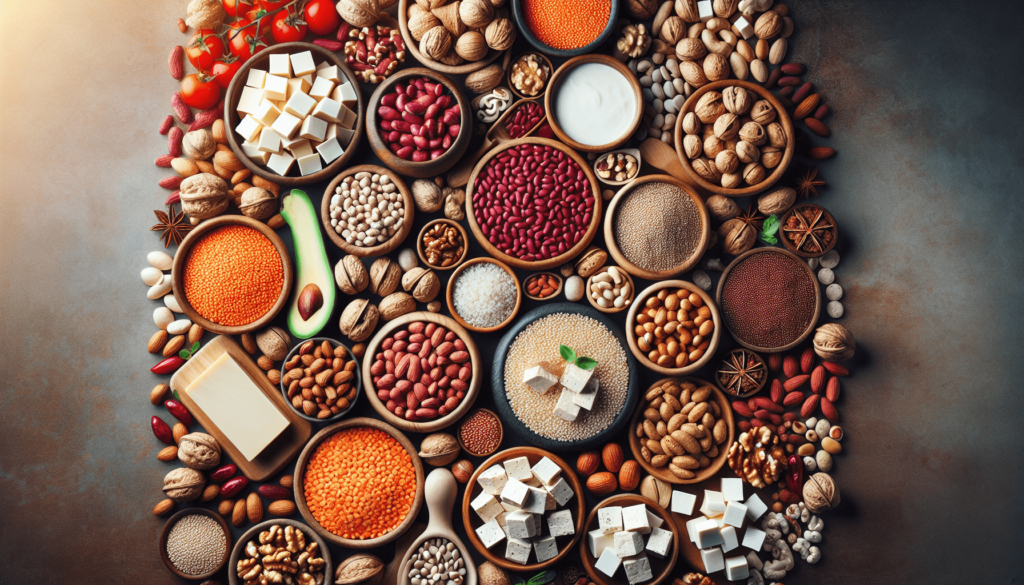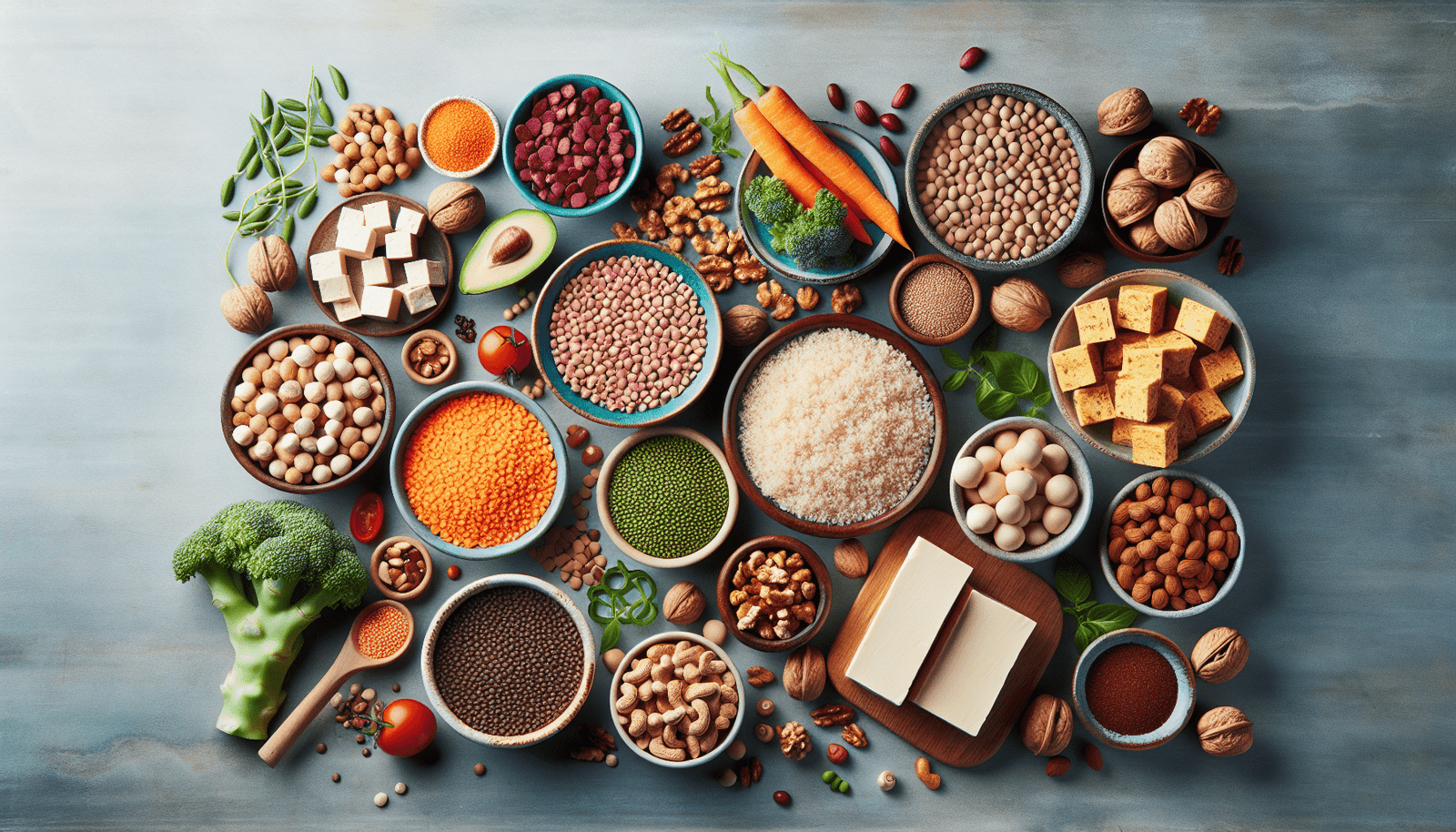Do you struggle to find enough protein sources in your vegan diet? You’re not alone! Luckily, there are plenty of plant-based options to help you meet your protein needs. In this comprehensive guide, we’ll explore a variety of vegan protein sources and provide you with all the information you need to maintain a healthy and balanced diet.

Understanding Protein Needs on a Vegan Diet
When following a vegan diet, it’s essential to ensure that you’re getting enough protein to support overall health and well-being. Protein is crucial for building and repairing tissues, maintaining proper immune function, and supporting muscle growth. The recommended dietary allowance (RDA) for protein is 0.8 grams per kilogram of body weight per day, but some individuals, such as athletes or those looking to build muscle, may require more.
If you’re concerned about meeting your protein needs on a vegan diet, rest assured that there are plenty of plant-based options available. By incorporating a variety of protein-rich foods into your meals and snacks, you can easily meet your daily protein requirements.
Protein-Rich Vegan Foods
When it comes to vegan protein sources, there are plenty of options to choose from. Here are some of the best plant-based foods that are rich in protein:
- Legumes: Beans, lentils, and chickpeas are excellent sources of protein, fiber, and other essential nutrients.
- Tofu and Tempeh: These soy-based products are versatile and can be used in a variety of dishes.
- Seitan: Made from wheat gluten, seitan is a high-protein meat substitute that is perfect for vegan recipes.
- Nuts and Seeds: Almonds, chia seeds, and hemp seeds are all great sources of protein and healthy fats.
- Whole Grains: Quinoa, brown rice, and oats are all good sources of plant-based protein.
By incorporating a variety of these foods into your daily meals, you can easily meet your protein needs on a vegan diet.
Protein Supplements for Vegans
While it’s possible to get all the protein you need from whole foods, some individuals may choose to supplement their diet with protein powders or shakes. Vegan protein supplements are available in a variety of forms, including pea protein, rice protein, and hemp protein. These supplements can be a convenient and efficient way to boost your protein intake, especially for those with higher protein needs.
When choosing a protein supplement, be sure to look for products that are free from artificial additives and sweeteners. It’s also essential to consider your individual dietary preferences and any allergies or sensitivities you may have when selecting a protein supplement.
Protein Combining for Optimal Nutrition
One common concern among vegans is whether they need to combine different plant-based foods to create a “complete” protein. While it was once believed that protein combining was necessary to ensure adequate protein intake, we now know that this is not the case.
Most plant-based foods contain all the essential amino acids our bodies need, so as long as you’re eating a varied and balanced diet, you shouldn’t have to worry about protein combining. By incorporating a variety of protein-rich foods into your meals, you can easily meet your nutritional needs and achieve optimal health.

Sample Meal Plan for Vegan Protein
If you’re looking to boost your protein intake on a vegan diet, consider trying out this sample meal plan:
- Breakfast: Quinoa porridge topped with almond butter and fresh berries
- Snack: Hummus and veggie sticks
- Lunch: Tofu and vegetable stir-fry with brown rice
- Snack: Chia pudding made with almond milk
- Dinner: Lentil and sweet potato curry served with quinoa
- Dessert: Homemade protein energy balls made with dates and nuts
By incorporating protein-rich foods into each meal and snack, you can easily meet your protein needs while enjoying a delicious and balanced diet.
Tips for Incorporating More Protein-Rich Foods Into Your Diet
If you’re looking to increase your protein intake on a vegan diet, here are some tips to help you incorporate more protein-rich foods into your meals:
- Add tofu, tempeh, or seitan to stir-fries, curries, and salads for an extra protein boost.
- Snack on nuts and seeds throughout the day to increase your protein and healthy fat intake.
- Include lentils or beans in soups, stews, and casseroles for a hearty and nutritious meal.
- Experiment with different plant-based protein sources, such as nutritional yeast, spirulina, and hemp protein powder, to keep your meals exciting and varied.
By incorporating a variety of protein-rich plant-based foods into your diet, you can easily meet your protein needs while enjoying a varied and delicious menu.
Final Thoughts
Maintaining an adequate protein intake on a vegan diet is essential for overall health and well-being. By incorporating a variety of protein-rich plant-based foods into your meals and snacks, you can easily meet your daily protein requirements and enjoy a delicious and balanced diet.
Whether you choose to get your protein from whole foods or supplements, there are plenty of options available to help you achieve your nutritional goals. Remember to listen to your body’s needs and preferences and make choices that align with your individual dietary requirements.
With this comprehensive guide to vegan protein sources, you now have all the information you need to maintain a healthy and balanced diet while following a vegan lifestyle. By focusing on nutrient-dense and delicious plant-based options, you can easily meet your protein needs and thrive on a vegan diet.

